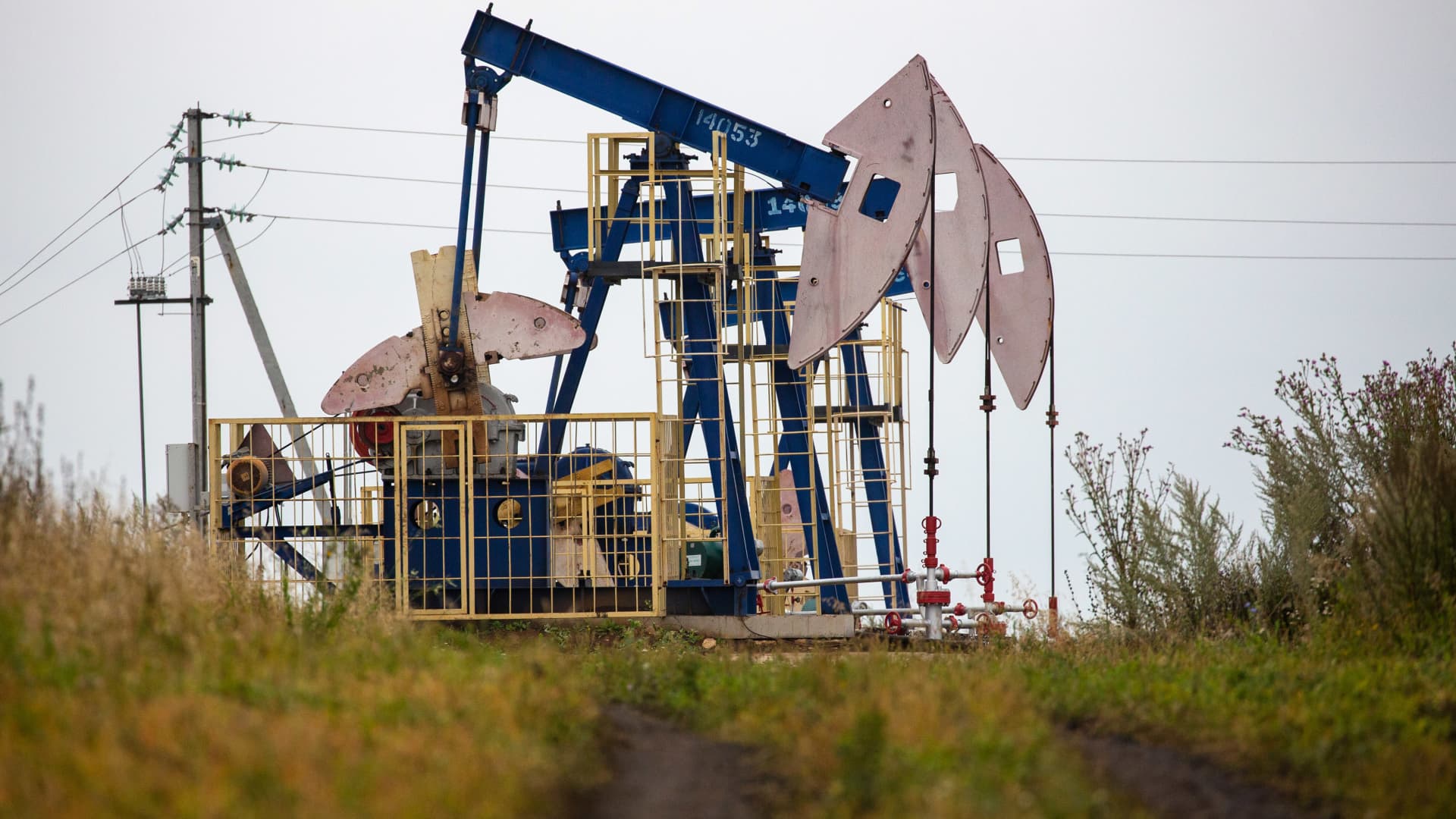Oil prices rose 4% on Friday after the United States tightened sanctions on Russian crude exports, exacerbating concerns about supplies in an already balanced energy market.
International benchmark Brent crude futures with December expiration were trading up 3.9% at $89.34 a barrel at around 6:25 a.m. EST, while US West Texas Intermediate crude futures for November were up 4.1% to trade at 86.28. $ per barrel.
The move back towards $90 a barrel follows the US on Thursday Penalties imposed It imposed sanctions on two shipping companies that it said had violated oil price caps set by the Group of Seven, a mechanism designed to keep a reliable supply of Russian flows in the market while holding back the Kremlin’s money.
The US Treasury Department said in a statement, “This action confirms the Treasury Department’s commitment with its international partners to responsibly reduce the Russian government’s oil profits and constrain the Russian war machine.”
The G7, Australia and the European Union implemented a price ceiling of $60 per barrel on Russian oil on December 5 last year. This came in conjunction with the move of the European Union and the United Kingdom to impose a ban on imports of Russian crude oil transported by sea.
These measures were believed at the time to largely reflect the more significant step to limit fossil fuel export revenues that finance Russia’s war in Ukraine.
The US Treasury Department’s Office of Foreign Assets Control said on Thursday that it had imposed sanctions on the owners of two tankers carrying Russian oil at a price higher than the maximum price: one in Turkey and the other in the United Arab Emirates.
The tanker YasaGolden Bosphorus, owned by Turkey-based Ice Pearl Navigation Corp, was said to be carrying crude oil at a price exceeding $80 per barrel after the price cap came into effect.
Meanwhile, OFAC said SCF Primorye, owned by UAE-based Lumber Marine SA, transported Russian oil at a price of more than $75 per barrel from a port in Russia after triggering a price cap mechanism.
Deputy Treasury Secretary Wally Adeyemo said the move to clamp down on Russian oil sales “demonstrates our continued commitment to reducing Russia’s resources for its war against Ukraine and imposing price caps.”
“We remain committed to implementing a price cap policy that has two goals: to reduce the oil profits that Russia relies on to wage its unjust war against Ukraine, and to keep global energy markets stable and well-supplied despite the disruptions caused by Russia’s unprovoked invasion of Ukraine,” Adeyemo added.

“Typical beer advocate. Future teen idol. Unapologetic tv practitioner. Music trailblazer.”







More Stories
Assessing Solana’s ecosystem and how Jito will help it grow
Five things to know about Biden’s controversial retirement rule
The best things you can buy in Memorial Day sales